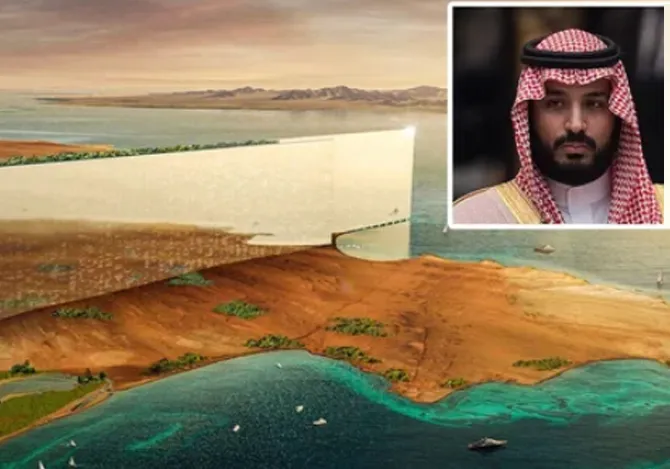
Once focused primarily on the Hajj, Saudi Arabia’s outreach in Africa has significantly expanded over the past 60 years to include a variety of mutually beneficial fields, including sustainable development, trade, investment, education, health, sports, culture, mining, and oil and gas. Now, after forging a historic Abraham Accords with Israel and reconciliation with Iran, Saudi has recently intensified its diplomatic campaign in Africa. Saudi has been working to increase its economic footprint in Africa by scaling up its limited economic engagements.
And, to take its relationship with Africa to the next level, Saudi organised the first-ever Saudi-Africa Summit on 10 November 2023. During his introductory remarks, Saudi Finance Minister Mohammed Al-Jadaan stated that Saudi Arabia and Africa had a “common history and destiny”. The one-day conference will surely go a long way in strengthening strategic alliances and advancing ties and collaboration between the Kingdom and African countries.
Saudi has been working to increase its economic footprint in Africa by scaling up its limited economic engagements.
What happened at the Saudi-Africa Summit?
The first-ever Saudi-Africa Summit was attended by more than 50 dignitaries, including more than 10 heads of state. Azali Assoumani, Comoran President and the Chairperson, African Union and Moussa Faki Mahamat, Chairperson, African Union Commission, also attended the Summit. During the Summit, Saudi Arabia proposed allocating US$10 billion as insurance to Saudi exports until 2030 and an extra US$5 billion to finance African countries’ development. More than 50 agreements and MoUs worth US$533 million were inked by the Saudi Development Fund with 12 African states. Furthermore, the King Salman Development Initiative of over US$1 billion was launched for Africa and is projected to continue over 10 years. Saudi Arabia also declared its intention to increase its diplomatic presence on the continent, adding new embassies from about 27 to over 40. Several agreements were also signed in the social fields, such as culture, human resources, social development, and sports.
On the sidelines of the Summit, Saudi Arabia and Nigeria signed some investment agreements. One such agreement calls for renovating four damaged oil refineries in Nigeria. The Saudi state-owned oil corporation Aramco will revamp all four refineries within two to three years. Saudi Arabia also pledged to deposit substantial foreign exchange to replenish Nigeria’s rapidly depleting reserves and sustain the government’s foreign exchange reforms. The revival of the Nigeria-Saudi Arabia Business Council, proposed in 2019, is expected to herald a new era of commercial collaboration between the two countries.
The regional contest for influence in Africa
Africa is increasingly becoming the focus of intense struggle among numerous world powers. The United States (US), Europe, China, India, Russia, and several Arab countries, which includes the United Arab Emirates (UAE), Qatar, Türkiyé, in addition to Saudi Arabia, are looking to make political and economic inroads. As a matter of fact, Kuwait was the first Arab country to host Africa during the 2013 Arab-Africa Summit. Given Saudi Arabia, the UAE and Iran are set to become new members of BRICS in 2024, there will be increasing competition for a larger slice of the African pie.
Africa is increasingly becoming the focus of intense struggle among numerous world powers. The United States (US), Europe, China, India, Russia, and several Arab countries, which includes the United Arab Emirates (UAE), Qatar, Türkiyé, in addition to Saudi Arabia, are looking to make political and economic inroads.
Today, UAE is the fourth-largest investor in Africa after the EU, China, and the US. The Abu Dhabi Fund for Development provided US$16.6 billion in funding for over 66 projects in 28 African nations in 208 alone. In terms of port expansion and maritime collaboration, Dubai Ports World (DP World), a state-owned behemoth, is already a pioneer, managing projects in more than 10 African countries. In the past 10 years, DP World has made over US$1.8 billion in investments in Africa, and committed to invest another US$3 billion.
Iran is genuinely interested in expanding its engagement into Africa. Tehran’s principle objective, as expressed by President Hassan Rouhani in 2014 and the current President Ibrahim Raisi, is to improve its connections with Africa. Raisi made a three-country tour earlier this year and became the first Iranian president to visit the continent in eleven years. Africa is vital to Iran’s leadership as Tehran seeks to reduce the adverse effects of US and EU sanctions on its faltering economy by forging commercial relations with African leaders.
Since 2005, Türkiyé has developed into a significant player in Africa by adhering to a consistent Africa policy. Similar to India, Türkiyé has already hosted three Africa summits. Along with soft power instruments like culture and history, Türkiyé aims to strengthen its position on the continent through a variety of diplomatic, commercial, investment, health, education, security, and military cooperation channels. In the past fifteen years, President Recep Tayyip Erdogan has travelled to over thirty African nations, underscoring the importance of Africa for Türkiyé. As a matter of fact, he refers to Türkiyé as part of Afro-Eurasia.
Saudi’s current Africa outreach
Investing in Africa is certainly nothing new for Riyadh, but this time it seems that the Saudis are determined to catch up on the African continent underscored by its aggressive soft diplomacy tilt toward Africa. Therefore, the Summit also demonstrates Saudi Arabia’s desire to play a more central role in the changing global order.
Currently, Saudi engagement primarily focuses on South Africa and Muslim-majority nations (in the Horn of Africa, West Africa and Maghreb). Saudi’s two main trading partners in Africa are South Africa and Egypt. While Saudi exports rubber, chemicals, consumer goods, minerals, metals, and food products to Africa, its import from Africa mainly consists of metals, raw materials, vegetables, stone, and glass products. In 2022, bilateral trade between Saudi and Africa reached US$45 billion. This is a significant increase in the last five years, particularly in Saudi non-oil exports to Africa, with an annual growth rate of 5.96 percent between 2018 and 2022.
Furthermore, African countries are being pitched with debt reduction and conflict settlement by Saudi Arabia. Earlier, during its G20 chairmanship in 2020, Saudi Arabia advocated for the suspension of debt service obligations for Africa. At the Africa Summit, the Saudi Finance Minister disclosed that the Kingdom is considering various funding arrangements to assist Ghana and some other friendly African countries with their debt.
Saudi Vision for Africa
Saudi Arabia is an emerging global powerhouse, as evidenced by its inclusion in the BRICS alliance. In 2016, Saudi Arabia unveiled its Vision 2030, a geoeconomic strategy designed to reduce its dependence on oil wealth and diversify its economy into renewable energy, sports, tourism, logistics, and artificial intelligence. Undoubtedly, the Kingdom requires plenty of partners in order to bring this blueprint into reality. Therefore, it is natural for the Kingdom to turn to Africa for a sustained partnership, investment, and economic collaboration.
Saudi Arabia is an emerging global powerhouse, as evidenced by its inclusion in the BRICS alliance.
In fact, Saudi Arabia views Africa as an indispensable ally amid the world’s growing multipolarity. It has been using its financial muscle to increase its soft power allure in sub-Saharan Africa. Since King Salman and Crown Prince Mohammed bin Salman came to power, numerous Heads of state from Africa have visited the Kingdom, indicating the growing collaboration between Saudi Arabia and African countries. Multiple development initiatives are also being carried out by the Saudi Fund for Development. So far, this concessional financing helped develop projects in over 44 African countries. In addition, Saudi Arabia is also the principal donor of the Islamic Development Bank.
Over the years, Saudi Arabia has developed world-leading expertise in critical industries and a long-term growth strategy to enable the prosperity of its domestic industries. Applying this experience to Africa’s economies and resource bases presents an excellent opportunity for both. Saudi investment in the continent, with immense potential for reciprocal return on investment, is another strong indicator of the Kingdom’s shift away from its traditional industries and toward a new, broader portfolio of specialisations.
Security experts say that the global energy crisis following Russia’s war with Ukraine in February 2022 has provided Saudi Arabia with an opportunity to strengthen its influence and become less reliant on Washington. Earlier, Riyadh attempted to broker a peace deal between Sudan’s warring generals. Saudi Arabia’s quest for strategic autonomy is also evident from its diplomatic outreach to countries suspended from the African Union (AU) for orchestrating coups, such as Gabon, Niger, and Sudan. By inviting them, Saudi Arabia sent a strong signal to the West that it was disregarding the West’s anti-coup principles.
Way forward
For Saudi Arabia’s grand vision, Africa represents a firm promise. Africa has the world’s highest population growth rate as well as the least explored energy resources. Saudi Arabia aims to strengthen its religious soft power in Africa while adding a broader cultural and social dimension to its commercial and diplomatic connections. Indeed, there are several areas of opportunity that can be explored converging the Kingdom’s Vision 2030 and the African Agenda 2063. In that sense, the Summit might be a watershed moment for Saudi foreign policy toward Africa. On the other hand, this rapprochement can also open new avenues for African development and cooperation. While the extent to which Saudi-Africa relationships will expand remains to be seen, it is evident that Riyadh is investing heavily in a relationship that it expects to grow in economic and political importance in the coming years.
Samir Bhattacharya is Senior Research Associate at Vivekananda International Foundation
The views expressed above belong to the author(s). ORF research and analyses now available on Telegram! Click here to access our curated content — blogs, longforms and interviews.




 PREV
PREV


